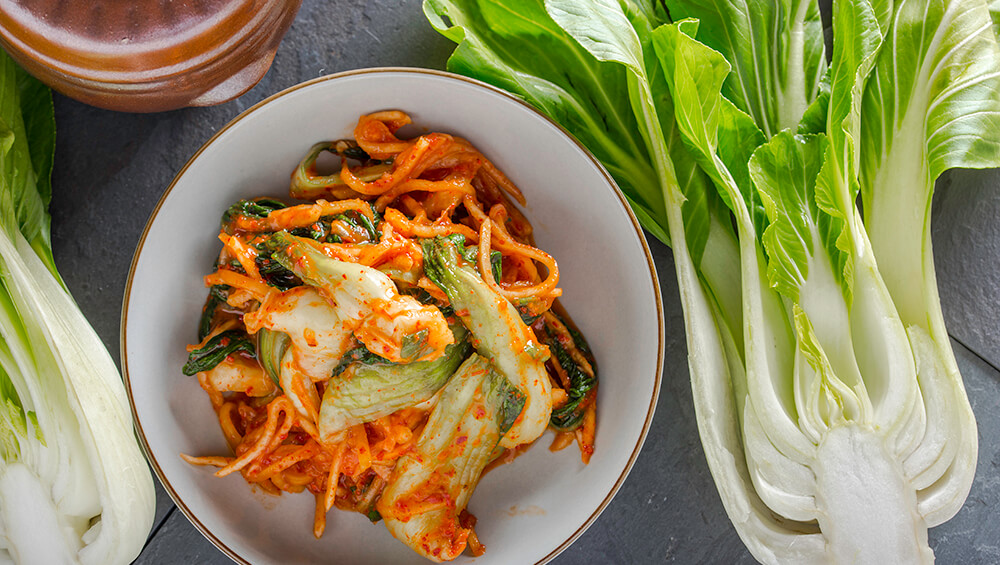How to Choose the Right Foods for Optimal Health
Most people naturally eat for pleasure, but are the foods you eat keeping your gut happy, too? For the trillions of bacteria that live in your gastrointestinal tract, what you eat can play an important role in your body’s ability to fight infection, maintain an ideal weight, fight heart disease and even some forms of cancer and autoimmune disease.
Research has found that eating a lot of ultra-processed foods, as well as animal products and other foods high in saturated fat, can upset the delicate balance of good and bad gut bacteria. This can lead to digestive problems and inflammation. “Simply put, our bodies require that we eat enough good plant material to keep digestion functioning properly,” explains nutritionist Julie Stefanski.
To understand how food can boost gut health, there are two terms to know. Probiotics are beneficial bacteria that can help your gut regulate itself and keep harmful bacteria from wreaking havoc. The fermented foods listed below are full of them. However, it’s important to shop carefully. Probiotics are living organisms and vulnerable to the high temperatures that food endures during canning and pasteurization, so anything that is shelf-stable won’t provide the same benefits.
Prebiotics are another important requirement. These are foods that contain soluble fiber, which actually ferments during digestion and helps beneficial bacteria thrive. While the terms may sound technical, fueling your gut with a steady supply of both probiotics and prebiotics is actually pretty easy if you include the following foods in your diet.
What to Eat
PROBIOTIC FOODS
Yogurt: Smooth and creamy yogurt is well known for its gut-boosting properties. Just make sure to look for products that contain “live active cultures” and preferably minimal sugar (as well as artificial sweeteners) because those ingredients can have a negative effect on gut health. If plain yogurt isn’t appealing to you, add your own fresh fruit.
Kimchi: A spicy Korean dish made from fermented cabbage and other vegetables, kimchi makes the perfect topping for Asian-inspired tacos or rice bowls. Use it wherever you want a spicy pop of flavor, though some brands are made with an abundance of chilies and yield a lot of heat, so consider that before diving in.
Sauerkraut: Like kimchi, sauerkraut is a fermented cabbage dish rich in valuable probiotics. Try it in sandwiches or add it to a salad for a burst of tangy flavor. However, to get the most health benefits, look for fresh sauerkraut in the refrigerator section of your grocery and add it at the end of your cooking time to preserve its probiotic potential.
PREBIOTIC FOODS
Bananas: If you enjoy your bananas slightly green, you’re in luck. Green bananas are especially high in a special type of fiber that is considered a potent prebiotic.
Asparagus: An excellent prebiotic food, one cup of asparagus provides an impressive 4 grams of fiber, more than 15% of your daily needs. Add asparagus to omelets and stir fries, or simply enjoy it as a side dish.
Whole grains: Some research indicates that whole grains not only fuel beneficial gut bacteria, they may also keep harmful gut bacterial levels at manageable levels. Barley, bulgur wheat, and oats are all great whole grain options worth exploring.
 Mindful Sodexo
Mindful Sodexo 




0 Comments